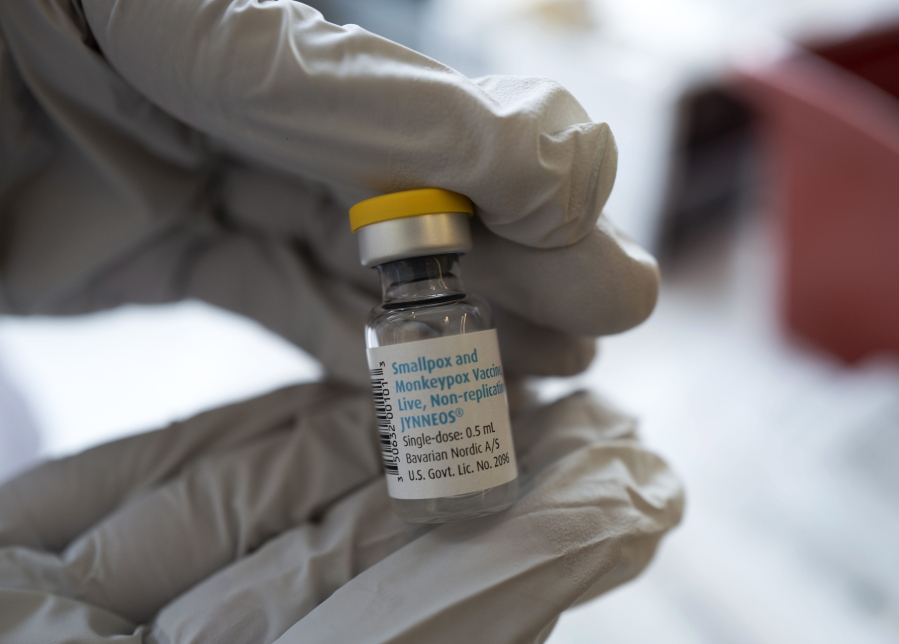Clark County now has three cases of human monkeypox virus, after the Centers for Disease Control and Prevention declared it a public health emergency. There are a total of 213 cases in Washington, according to the Washington State Department of Health MPV tracker.
Dr. Katie Sharff, chief of infectious disease for Kaiser Permanente in Portland, urges the public to take the virus seriously but not to panic. She said there are two phases of symptoms — early symptoms include fever, headaches, weakness or swollen lymph nodes. The later phase is a rash, which can appear to look like blisters or pustules, in the genital or oral region.
The rash can be extraordinarily painful, Sharff said, to the point where people have trouble using the restroom or eating and drinking. Though the pain can be debilitating and very uncomfortable, she said, the virus is rarely fatal.
The monkeypox virus — hMPXV — is spread through close personal skin-to-skin contact or through touching contaminated items such as sheets, towels and bedding, though Sharff said that is a much less likely route of transmission.
“One of the myths I’m hearing is that people are fearful of this transmitting in public settings,” she said. “What we know right now is that you are very unlikely to get hMPXV, for example, on a bus, in a movie theater, on a subway, or trying on clothes in a clothing store.”
In comparison to COVID-19, monkeypox is far less transmissible. Right now, people who engage with several anonymous intimate partners are most susceptible to the virus. Sharff urges people to understand the risk of engaging with multiple sexual partners and to assess personal risk.
Sharff said there’s less education and communication regarding monkeypox in comparison to COVID-19, which might be attributed to public health emergency burnout or stigma around the virus. However, she said it’s critical to communicate clearly who’s at risk right now so that physicians are able to prioritize tools and resources for those who are at highest risk.
“It’s a personal frustration of mine that there’s this vacuum of information out there,” Sharff said. “I think it’s really important to be able to speak openly and communicate clearly.”
There is a limited supply of vaccines due to a worldwide shortage. There have been 6,930 vaccines shipped to Washington. Sharff said vaccines should be reserved for the highest risk individuals, with a strict list of criteria of who is able to receive a vaccine.
To be eligible, people must have either contracted the virus, has presumed exposure to monkeypox due to multiple anonymous sexual partners in the last two weeks, have had a recent diagnoses of rectal sexually transmitted infections or contracted syphilis in the last three months.
“We really want to encourage the right people to get the vaccine,” Sharff said. “The key is to communicate effectively, educate those who are at highest risk, and provide tools to reduce the spread including vaccination. That’s how we’re going to be successful together.”




